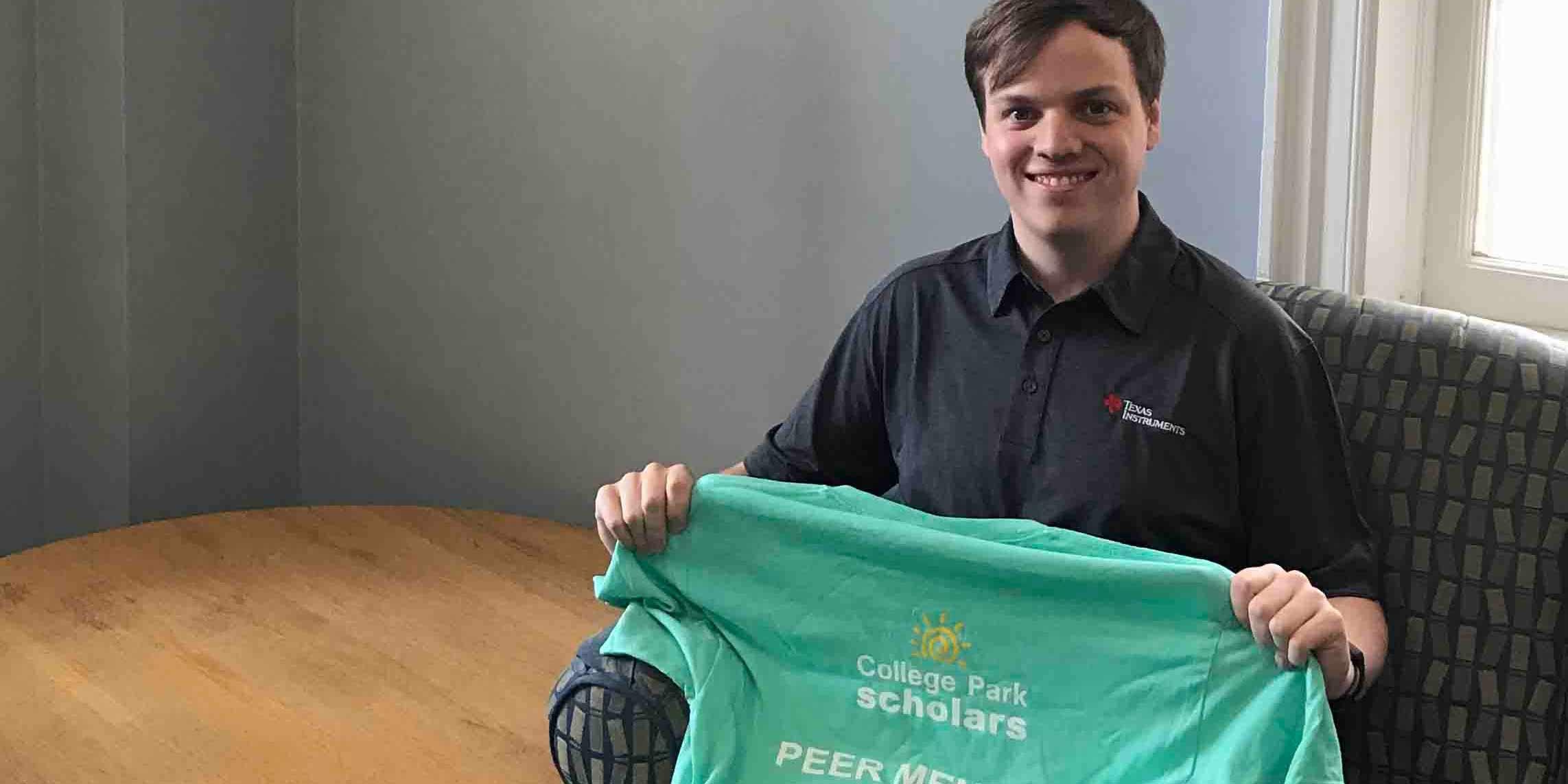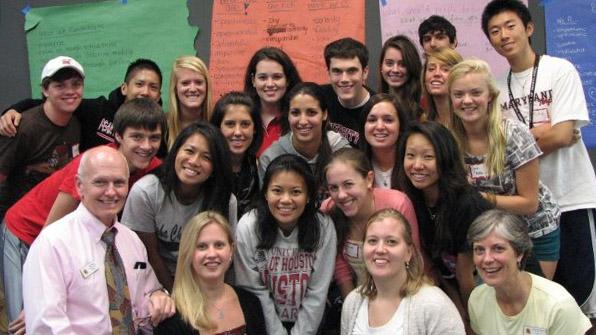
As part of our yearlong #ScholarsAt25 recognition of our 25th anniversary, Scholars is publishing occasional profiles on our alums. To be considered for an alumni profile, please fill out the form at go.umd.edu/alumniprofile.
Sean Murphy
Alum of:
Science, Technology and Society (STS)
Year graduated:
2012 for first degree, 2016 for the second—I originally graduated with a BS in mathematics. After a failed year in graduate school in applied mathematics, I reevaluated things and decided to go back to UMD for a BS in electrical engineering.
You created the Peer Mentors program while you were in Scholars. Where did the idea come from?
I personally had a hard time transitioning from high school to college. I was an out-of-state student and undeclared major, trying to find myself both socially and academically. This is something being in STS Scholars helped with—I developed lifelong friends and gained an interest in engineering—but I wondered what more could be done.
I was observing how many of us were relying on older Scholars students and alums for academic support and guidance. I wondered: Could we make this a more formal process that all could take advantage of if needed?
How did you go from the idea to launching the actual program?
It came from my involvement in the Scholars Student Advisory Board. There were multiple students on SAB who immediately bought into the idea, and our respective Scholars programs—STS; Science, Discovery and the Universe; and Media, Self and Society, if memory serves—became the first programs to pilot peer mentors.
I worked with a Marybeth Drechsler [a Scholars graduate assistant who served as an SAB advisor] and others to get buy-in from Scholars. I also met with leadership of the Department of Resident Life to get buy-in from them, and understand the limitations and differences between a peer mentor and a resident assistant.
We quickly gained traction from there and created training materials, selection process, student-matching and so on. Peer mentors moved into more programs; we also developed a leadership structure and core objectives so the program could thrive after my time at UMD—I am so incredibly happy that it has! It is very, very cool to see that the original ideas have lasted and still have traction with current students.
Favorite Scholars memory?
Working with Marybeth and now–Assistant Director Ben Parks in the main office.
[About the photo at right, Murphy says: "STS was in Chestertown while I was there. During Snowpocalypse in 2009, we had no classes for two weeks because of the blizzard. We had a snowball fight with Arts Scholars and claimed a snow fort with this t-shirt 'flag.' Good times."]
What did you learn in Scholars that you still carry with you today?
I learned how to give back to my community and how to work with diverse groups of people. I also learned the connections between technology and society, which helped in forming a basis for my interest in electrical engineering.
When I think of Scholars, I think…
…of a quote that was hung up in a Scholars staff member’s office: “Never doubt that a small group of thoughtful, committed citizens can change the world; indeed, it’s the only thing that ever has.” I always felt so inspired and that I could tackle anything while working in Scholars.
The person from Scholars who made the greatest impact on me was:
It has to be Marybeth Drechsler, though Ben Parks is a very close second. (Sorry Ben, Marybeth was first!) Marybeth taught me everything I know about leadership and being a force for positive change. But even more than that, she taught be how to be a kind, compassionate, empathetic and caring human being.
What are you up to these days?
I have been working at Texas Instruments (TI) as a validation engineer in its embedded processing organization. I have been extremely happy with this decision. I love the field of electrical engineering and working at TI!
Anything else?
I am sooo proud of how the Peer Mentors program has flourished! I love seeing how much peer mentors are ingrained in the Scholars freshman experience, especially in the key first weeks.
In the early days of Peer Mentors, we had a hard time appearing like an official program in order to recruit volunteer mentors. I remember even pushing to send acceptance letters to our first round of peer mentors on physical UMD letterhead just to seem more special and official (ha ha): Getting buy in from student leaders and Scholars faculty was easy. Convincing sophomore students to volunteer their time for common goals was harder!
